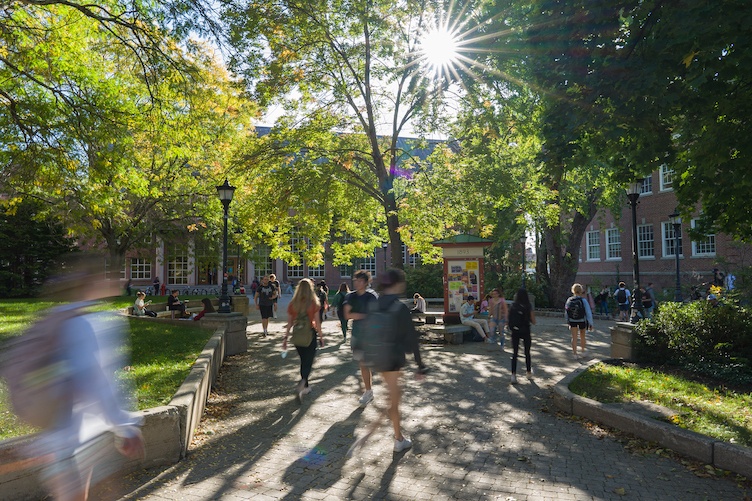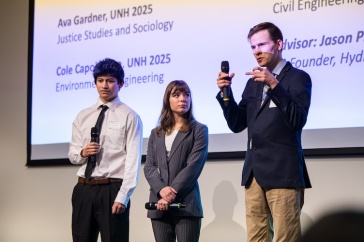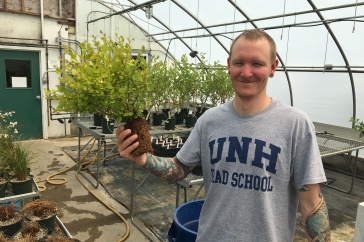
Faculty and staff at UNH’s Changemaker Collaborative have been awarded a grant of $27,540 from the Henry David Thoreau Foundation to help fund a clinic centered around carbon emissions that will allow students to gain hands-on experience completing carbon footprint analyses for regional businesses, nonprofits and communities.
The UNH Carbon Clinic is a collaborative and experiential model for responding to the urgency of the climate crisis by advancing capacity for climate action, and is in pilot mode this spring with two companies (Kennebunk Savings and the Lumina Foundation.) It will officially launch in the fall, providing opportunities for students from all majors at UNH to engage in sought-after training in greenhouse gas (GHG) emissions footprint analysis.
“This clinic represents a very tangible example of how UNH is leading the way nationally in sustainability in higher education,” says Fiona Wilson, deputy chief sustainability officer and director of the Sustainability Institute at UNH. “It’s a great expression of both our land grant mission, to embrace and support New Hampshire and the region, and our educational mission to ensure we graduate thousands of students in the coming decades who are equipped to contribute solutions on pressing sustainability challenges.”
The program will be led by Allison Leach, a postdoctoral researcher, and Jennifer Andrews, sustainability project director. Leach and Andrews lead UNH’s work in greenhouse gas footprinting and are recognized national experts in the field. They oversaw the development of SIMAP (Sustainability Indicator Management & Analysis Platform) a carbon and nitrogen-accounting platform that tracks, analyzes and improves organizational-wide sustainability which will provide the core educational tool for the clinic.
The proven algorithms in SIMAP are based on nearly two decades of investment by UNH, and SIMAP is now licensed to more than 500 other universities and organizations globally. “We are incredibly excited to be able to leverage our expertise and investment over so many years in greenhouse gas accounting to provide this exciting new student educational program which will also provide a much-needed service to the state” says Andrews.
The clinic will be supported by Changemaker Collaborative team members. Students who take part in the program will work in small teams to complete carbon footprint analyses for organizations in the area. The Changemaker Collaborative, housed at the UNH Sustainability Institute, is UNH’s platform for engaging UNH students in hands-on educational experiences in sustainability, and is a partnership with the Peter T. Paul College of Business and Economics and the Carsey School of Public Policy. Open to students across UNH, the Carbon Clinic is offered for credit through a partnership with Paul College’s Business in Practice (BiP) program, and students will earn academic credit for their participation.
The analysis performed in the clinic could prove critical – and timely – in a variety of ways. On March 21, 2022, the Securities and Exchange Commission proposed new mandatory climate disclosure rules, including GHG emissions, that if passed will significantly increase the demand for professional expertise in GHG footprinting.
Meeting those standards could be a challenge for many major companies as things stand, as a host of them are not currently prepared to do so, according to a recent article in Financial Times. The story notes that “just 22 percent of leaders have made a net-zero commitment” among 4,446 global chief executives surveyed for the piece, and that “more than half (55 percent) of chief executives at companies without a net-zero commitment admit they do not have the capability to measure emissions.”
“The UNH Carbon Clinic can make a tangible and meaningful contribution to companies in our state and beyond by providing them the needed capacity to help with their GHG emissions analysis,” Wilson says. “It’s a great example of how UNH is connecting applied research, high-impact student experiences and meaningful community engagement on sustainability in the region.”


















































